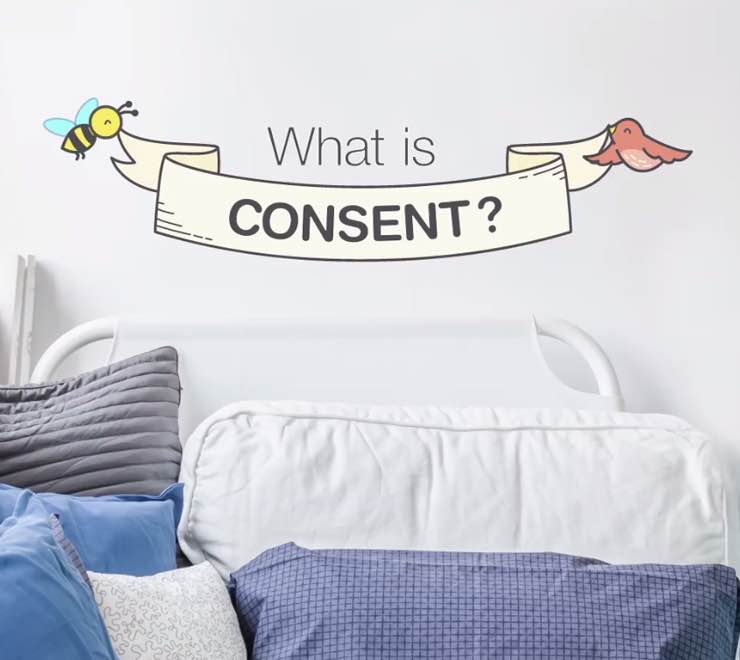Here, Kids Help Phone shares information about the possibility of pregnancy, emergency contraception, pregnancy tests and your options.
Throughout this content piece, Kids Help Phone uses the terms people assigned female at birth and people assigned male at birth to refer to individuals who are born with certain sex organs, hormones and/or chromosomes. However, it’s important to note that people may have a different gender identity than the sex assigned to them at birth. As well, people may use different words for their body parts than those used in this piece. Kids Help Phone supports everyone in using whatever terms fit best for them.
Most people assigned female at birth who have periods (menstruate) are capable of becoming pregnant. Pregnancy can occur from having sex with a person assigned male at birth that releases sperm. Sperm needs to be released inside of or close to the opening of a vagina in order to potentially cause pregnancy.
If you think you may be pregnant, it’s important to find out for sure. This can help you have peace of mind and help you decide how to move forward. First, consider the following:
- Is your period usually regular?
- When was your last sexual contact that could cause pregnancy?
- Did your partner ejaculate (come) near or inside of your vagina?
- Did you use birth control?
If you had sex that could cause pregnancy and used birth control properly (i.e. you followed the instructions for your preferred birth control method exactly) and with no failure (e.g. a condom breaking), your chances of being pregnant are low.
If you had sex that could cause pregnancy without using birth control or if there was birth control failure (e.g. a condom breaking), there’s a chance you may be pregnant.
If you had sex that could cause pregnancy and your period is late and/or you’re experiencing other pregnancy symptoms (see below for a list), there’s a chance you may be pregnant.
Keep in mind other things can affect your cycle, such as stress or hormonal birth control (e.g. the pill, the patch, contraceptive ring, etc.). If you think you may be pregnant, you can take an at-home pregnancy test or visit a doctor/nurse for a pregnancy test and/or exam to be certain.
What is emergency contraception?
Emergency contraception is a product you can use soon after having sex that could cause pregnancy to help prevent pregnancy, if you’re not planning on having a baby right now. For example, emergency contraception can be used if:
- a condom broke, slipped or leaked
- birth control was not used
- a dose of hormonal birth control was missed
Emergency contraception can also be used if a person may become pregnant after a sexual assault.
There are different types of emergency contraception available. You can find some forms of emergency contraception at pharmacies and sexual health clinics without a prescription (e.g. the morning-after pill). Other forms of emergency contraception may require a prescription and/or assistance from a doctor/nurse.
It’s important to know emergency contraception has limitations. For example, it does not protect against sexually transmitted infections (STIs). It’s also not as effective at preventing pregnancy as things like hormonal birth control and barrier methods such as condoms. You can talk to a health-care professional to find out if emergency contraception will work for you, the best option for you and for more information about your sexual health.





















